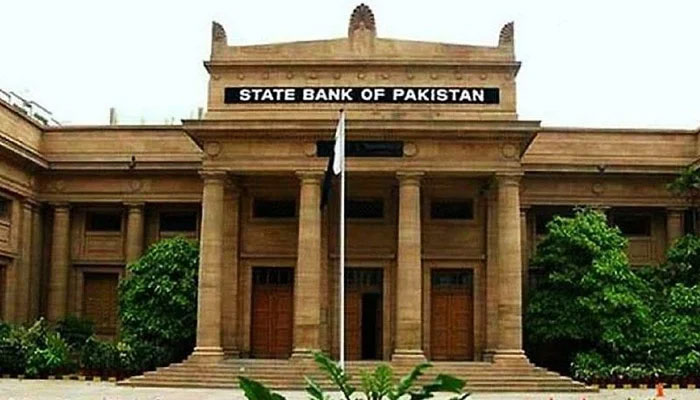SBP adopts two AAOIFI standards for Islamic banks
KARACHI: The State Bank of Pakistan has adopted two standards issued by the Accounting and Auditing Organisation for Islamic Financial Institutions (AAOIFI), in an attempt to unify Sharia practices in the Islamic banking industry, a circular said on Tuesday.
The SBP said that “in order to standardise and harmonise” Sharia practices in Islamic banking institutions (IBIs) in the country, it has adopted AAOIFI Shariah Standards No36, ‘Impact of Contingent Incidents on Commitments’, and No 37, ‘Credit Agreement’.
These Sharia standards are applicable with certain clarifications and amendments.
Contingent incidents in standard no 36 refer to those incidents that occur suddenly and cause influence on transactions or commitments arising from those transactions after their valid occurrence, the circular said.
Therefore, contingent incidents are different from defects of will, which exist since the time of signing the contract, although their impact occurs later on, it added.
Contingent incidents are also different from termination of commitments on mutual consent of the two parties or as per the desire of any of them, when a party is entitled to such right under the nature of the contract or due to the condition stipulated in the contract.
As per the types of contingent incidents, from the standpoint of its influence, a contingent incident can be either of the type that necessitates amendments in the commitments, or the type which constitutes an external reason for termination of the contract.
According to Standard No 37, the term credit refers to the financial transaction according to which one of the two or more parties becomes indebted to the other. Indebtedness in such transactions can arise at the beginning of the transaction, and this is known as direct cash credit such as loans and discounting of commercial papers by conventional financial institutions. Instead, indebtedness could be probable at the end of the transaction, and that is incidental credit, such as bank suretyship, letters of guarantee, bills of acceptance and letters of documentary credit.
The term ‘credit facilities’ is used to denote credit in both of its types ie, cash and incidental credit. The concepts of credit and credit facilities are more comprehensive than the concept of financing which relates to the case of actual deferment of one of the two transacted objects, the SBP said.
-
 Sarah Ferguson, Shamed Andrew Spotted In ‘family Costume Drama’
Sarah Ferguson, Shamed Andrew Spotted In ‘family Costume Drama’ -
 Kylie Kelce Reveals Why She Barely Planned Her Wedding Day?
Kylie Kelce Reveals Why She Barely Planned Her Wedding Day? -
 Why Shamed Andrew Called His Victims ‘Mrs Windsor’
Why Shamed Andrew Called His Victims ‘Mrs Windsor’ -
 Kate Hudson Explains Why Acting Isn't Discussed At Home
Kate Hudson Explains Why Acting Isn't Discussed At Home -
 Prince William, Kate Middleton Epstein Statement Was AI Generated, Says Expert
Prince William, Kate Middleton Epstein Statement Was AI Generated, Says Expert -
 Sarah Ferguson On Her Way To Hurt 'only Two People Who Care About Her'
Sarah Ferguson On Her Way To Hurt 'only Two People Who Care About Her' -
 World’s Top PC Maker Sounds Alarm Over Memory Chip Shortage
World’s Top PC Maker Sounds Alarm Over Memory Chip Shortage -
 King Charles Is ‘clearly Worried’ Andrew Has Tarnished Royal Image
King Charles Is ‘clearly Worried’ Andrew Has Tarnished Royal Image -
 Royal Family Loses 'loyal' Worker After King Charles Disliked His Work?
Royal Family Loses 'loyal' Worker After King Charles Disliked His Work? -
 James Van Der Beek's Quiet Sacrifice Before Death Comes To Light
James Van Der Beek's Quiet Sacrifice Before Death Comes To Light -
 Suspect Kills Six Across Florida Before Taking His Own Life
Suspect Kills Six Across Florida Before Taking His Own Life -
 AI Helps Researchers Identify 2,000-year-old Roman Board Game Stone
AI Helps Researchers Identify 2,000-year-old Roman Board Game Stone -
 Inside Kate Middleton, Prince William’s Nightmare Facing Andrew Mountbatten-Windsor
Inside Kate Middleton, Prince William’s Nightmare Facing Andrew Mountbatten-Windsor -
 Margaret Qualley Shares Heartfelt Confession About Husband Jack Antonoff: 'My Person'
Margaret Qualley Shares Heartfelt Confession About Husband Jack Antonoff: 'My Person' -
 Savannah Guthrie Shares Sweet Childhood Video With Missing Mom Nancy: Watch
Savannah Guthrie Shares Sweet Childhood Video With Missing Mom Nancy: Watch -
 Over $1.5 Million Raised To Support Van Der Beek's Family
Over $1.5 Million Raised To Support Van Der Beek's Family




